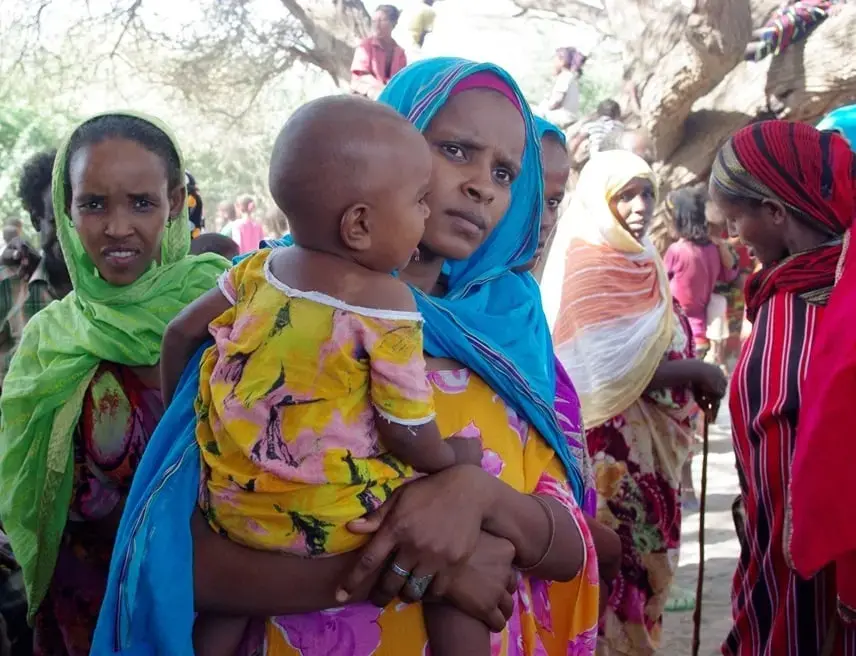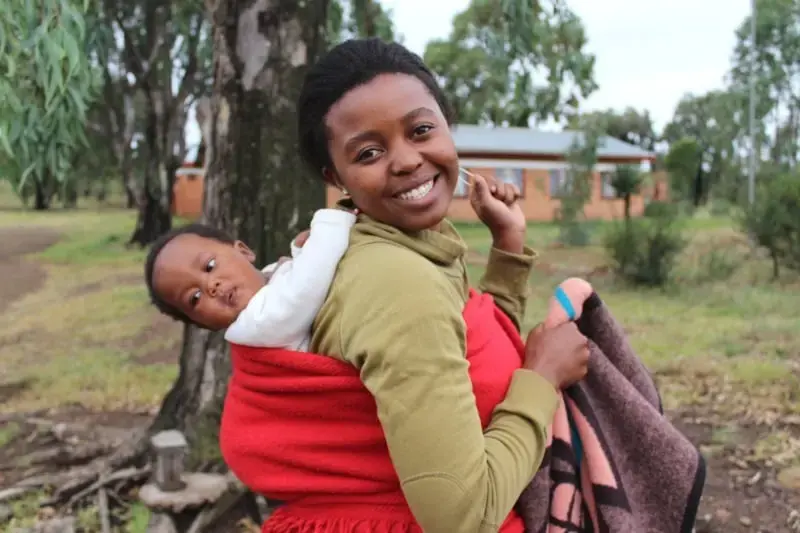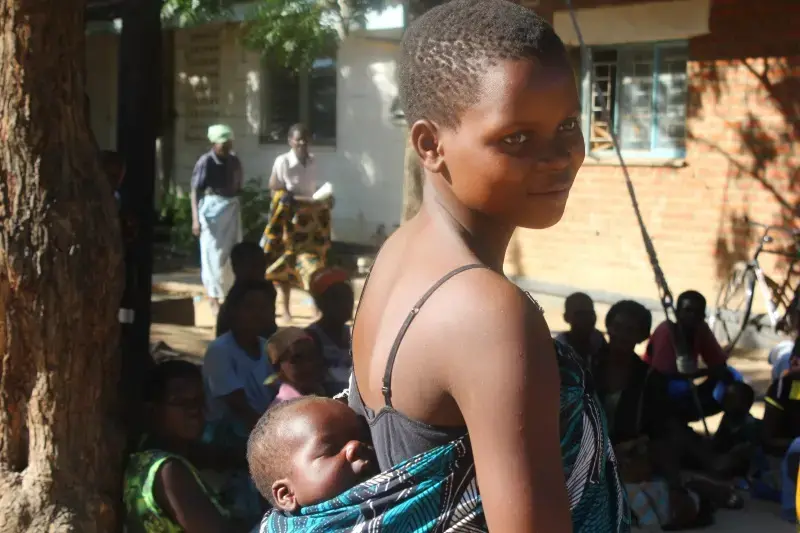REFUGEE SETTLEMENT, Nyumanzi, Uganda – South Sudanese refugee Abiei Anech, 26, nearly lost her life when she ignored the advice of Albert Amoko, a fellow South Sudanese volunteer sitting with her at their community meeting under a tree. "When I came to the settlement, I was pregnant. Amoko visited my house for pregnancy mapping and advised me to go to the health centre for antenatal (check-ups). I did not listen to him, but he came back to my house the next day and insisted that I should go.
“Finally I agreed, but when I went there the health worker realized that I was due and insisted that I stayed. I stubbornly returned home because I was not prepared. At about midnight my labour pains began, and that is when I was rushed to the health centre,” she said.
‘I should have listened to Amoko’
Ms. Anech is grateful to Amoko for saving her life. “I should have listened to him,” she says. “My delivery at the health centre was a good experience. Although I bled a lot, I was given some medication that stopped it. Had I been at home, I probably would not be alive today.” She turns to Amoko. “Thank you, Amoko. I should have named my child after you.”
When pregnant women take shelter in refugee camps in emergency settings, the first step towards ensuring they have a safe birth is raising awareness of the importance of skilled maternal health care. One of the methods that has proved effective in convincing expectant mothers to deliver at health centres is community dialogues.
Promoting skilled maternal health care
In this refugee settlement in Nyumanzi, Adjumani district, around 20 women, both young and old and some with children on their laps, gathered under a Shea nut tree to listen to a conversation being facilitated by Jacob Manyang. He is the team leader of the volunteers working in the settlement, a group of South Sudan refugees recruited by ACCORD with support from UNFPA. They play a crucial role in mapping the camp’s pregnant mothers and encouraging them to attend the health facility for antenatal care and delivery.
This particular community meeting was also attended by ACCORD Project Coordinator Helen Achan, who was herself heavily pregnant. She listened as, one by one, the women refugees shared their experiences of child birth in their new setting. Some talked about having safe births, while others mentioned the complications they encountered when delivering at home.
Ms. Achan listened and advised them on the importance of attending antenatal care and delivering at the health centre. Most importantly, she was there to discuss safe motherhood by sharing her experiences of pregnancy: “I am eight and a half months pregnant now. I have been for four antenatal check-ups. I am expecting a safe delivery,” she said.
“Don’t risk delivery at home”
Nyan Wut almost bled to death after rejecting a plea to deliver at the health centre. “I was in labour from 8:00 pm until 9:00 am the next morning, after bleeding the whole night. It was (in the morning) that I decided to go to the health centre. Luckily it was not far away, otherwise I would not be alive now,” she says. “Any mother who does not want to deliver at a health centre is taking a risk,” she said, and urged the mothers present not to do this.
Ms. Achan emphasized the need for and importance of seeking skilled health care during pregnancy: “We should encourage all pregnant mothers to attend antenatal care for a minimum of four times,” she said. She discouraged mothers from relying on Traditional Birth Attendants (TBAs): “We have many TBAs and they do good work, but there are times when complications arise at birth and a TBA may not manage,” she advised.
She asked the women to become ambassadors and to champion the cause of safe delivery in the health centres: “We would like you to refer all pregnant mothers to give birth at the health facility. When there are complications, the health facilities are in a position to address these and save the lives of the mother and the child. The health centres are equipped with skilled health workers, delivery beds and Reproductive Health kits,” she says.
The centre has midwives available 24 hours a day as well as a stand-by ambulance for women delivering.
“The organization supporting us, UNFPA, has a strong mandate – that no mother should die while giving life. It is not acceptable for a woman who is giving life to pay with her own life,” Ms. Achan said. She urged the women to attend the health centre in time and not to wait till the last minute to seek medical attention.
By the end of the discussion, it was evident that many mothers understood the benefits of delivering at a health centre. “We know that pregnancies can be complicated, so we will encourage and advise all mothers to deliver at the health centre,” said Deborah Akech, to cheers.
By Evelyn Kiapi




